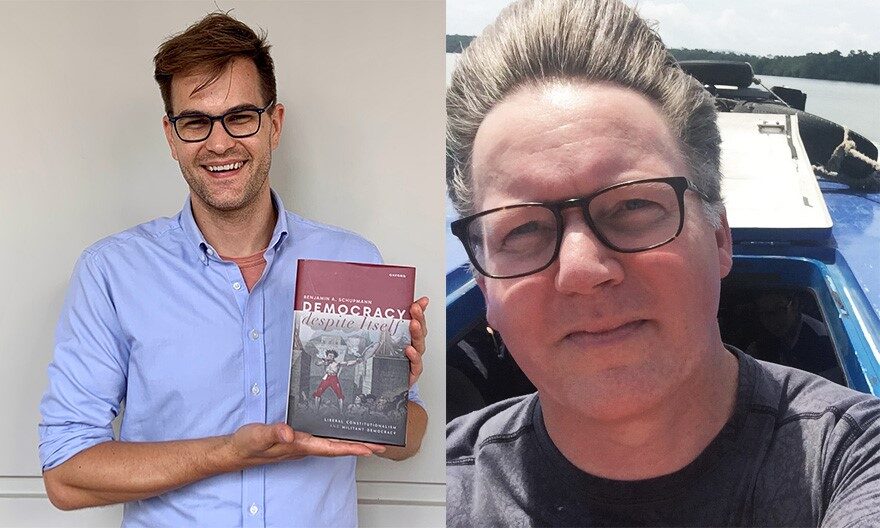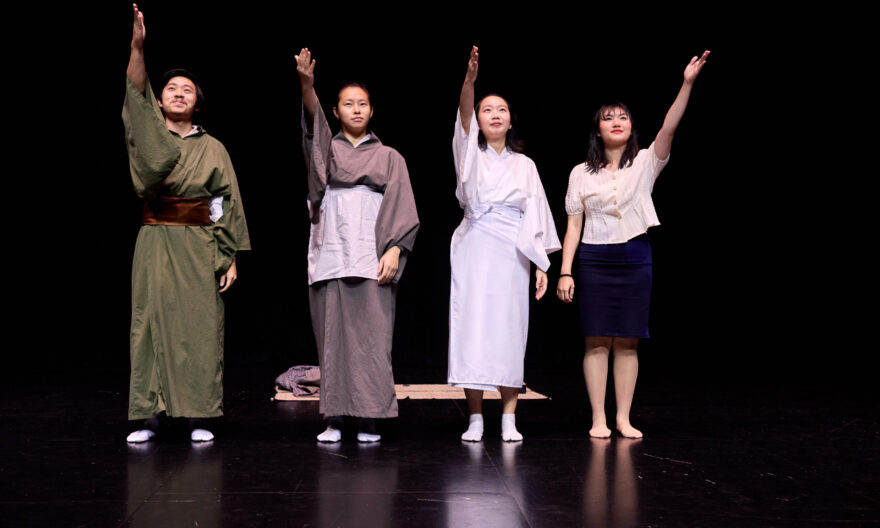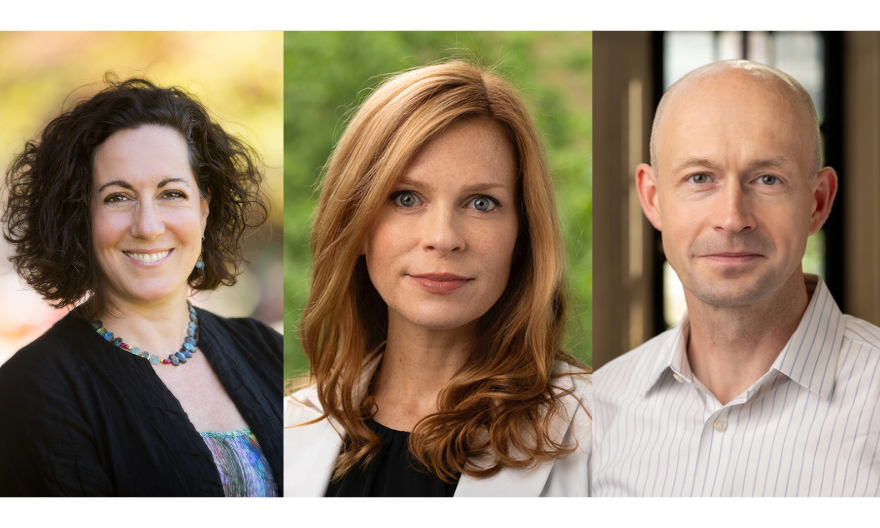Yale-NUS students deep dive into research areas of interest
Faculty’s support helps students satiate their intellectual curiosity in social behaviour and neurogenetics
At Yale-NUS, students are offered the opportunity to work on Special Projects in Science (SPS), where they study a topic in depth and conduct research on it for an entire semester. During this time, they work closely with a faculty advisor and receive guidance on their work.
Last semester, Foo Shi Wen (Class of 2024) worked with Associate Professor of Science (Life Sciences) Philip Johns to conduct two projects on animal behaviour, both of which address significant questions in the field regarding mate competition and cooperation within social groups. Shi Wen’s first project focused on the Sumatran flying dragon (Draco sumatranus), a local gliding lizard that is often seen on campus. Specifically, these lizards signal to and communicate with one another by extending the bright yellow dewlaps that they have on the undersides of their faces. For this project, Shi Wen used behavioural sequence analysis to investigate how the individual behaviours of the lizard progress in a timespan.

The Sumatran flying dragon extending its bright yellow dewlap. Photo taken by Ivan Neo.
For his second project, Shi Wen researched on the social and cooperative behaviours of smooth-coated otters in Singapore. In particular, he studied how otters are cooperative breeders, which refers to how other otters, besides the parents, aid in taking care of the offspring, increasing the offspring’s chances of survival. For this project, Shi Wen used multivariate statistics to analyse the data he gathered.
Through working on his SPS, Shi Wen developed his field-work skills, particularly with regard to live observation. The project also allowed him to design the studies from start to finish, which he feels will aid in his future work as he conducts more experiments. Shi Wen commented, “Knowing how animals interact and communicate with each other helps with conservation efforts. It allows us to take pre-emptive measures to mitigate the effects of human activities, such as construction, on species of conservation importance.”
 Zebrafish embryo model. Photo taken by Tirtha Banerjee.
Zebrafish embryo model. Photo taken by Tirtha Banerjee.
On the other hand, Jeff Collado (Class of 2025) studied gene expression analysis using zebrafish embryo models alongside Associate Professor of Science (Neuroscience) Ajay Mathuru in his Mechanism Underlying Behaviour Laboratory. His project involved a mix of laboratory work and literature review, and built on a recent method for sophisticated gene expression analysis, offering spatial and temporal resolution for multiplex gene expression analysis. In investigating this topic, Jeff made use of CRISPR-Cas9 technology to research the functions of receptors and also ligands, which are ions or neutral molecules that bond to a central metal atom or ion
Jeff’s interest in gene expression analysis was sparked at his first internship, where he worked with Asssoc Prof Mathuru at the Institute of Molecular and Cell Biology at The Agency for Science, Technology and Research (A*STAR). There, he started working with zebrafish models to study the neurogenetics of multi-substance addiction, and in so doing aims to better understand addiction. From working on the project, Jeff has learnt and developed his understanding of molecular biology techniques, such as polymerase chain reaction (PCR), in-situ hybridisation (ISH), and deoxyribonucleic (DNA) extraction. Currently, he is working on employing a higher-level (multiplex) and automated way of performing in-situ hybridisation, which is a technique used to locate where specific genes are expressed in the brain of the zebrafish model. He feels that these skills will be highly applicable to his future capstone project and research career as he wants to delve into neurogenetics. Aside from developing his lab skills, he also learned how to troubleshoot and manage experiments, which are skills necessary for independent research projects.
Through working on his SPS, Jeff has been able to collaborate with professors from different laboratories, such as Dr Tirtha Banerjee, Dr Josh Raine, and Dr Tanisha Goel. Jeff reflected, “I have also gained the best advice on how to navigate academia as an undergraduate. I have learned a lot about working in a diverse environment, specifically on how to transcend cultural barriers in communication and work.” From the experiences of these professors and conducting research for most of his time at Yale-NUS, Jeff concludes that “the pursuit of knowledge as an academic does not have to be boring or uptight.”




